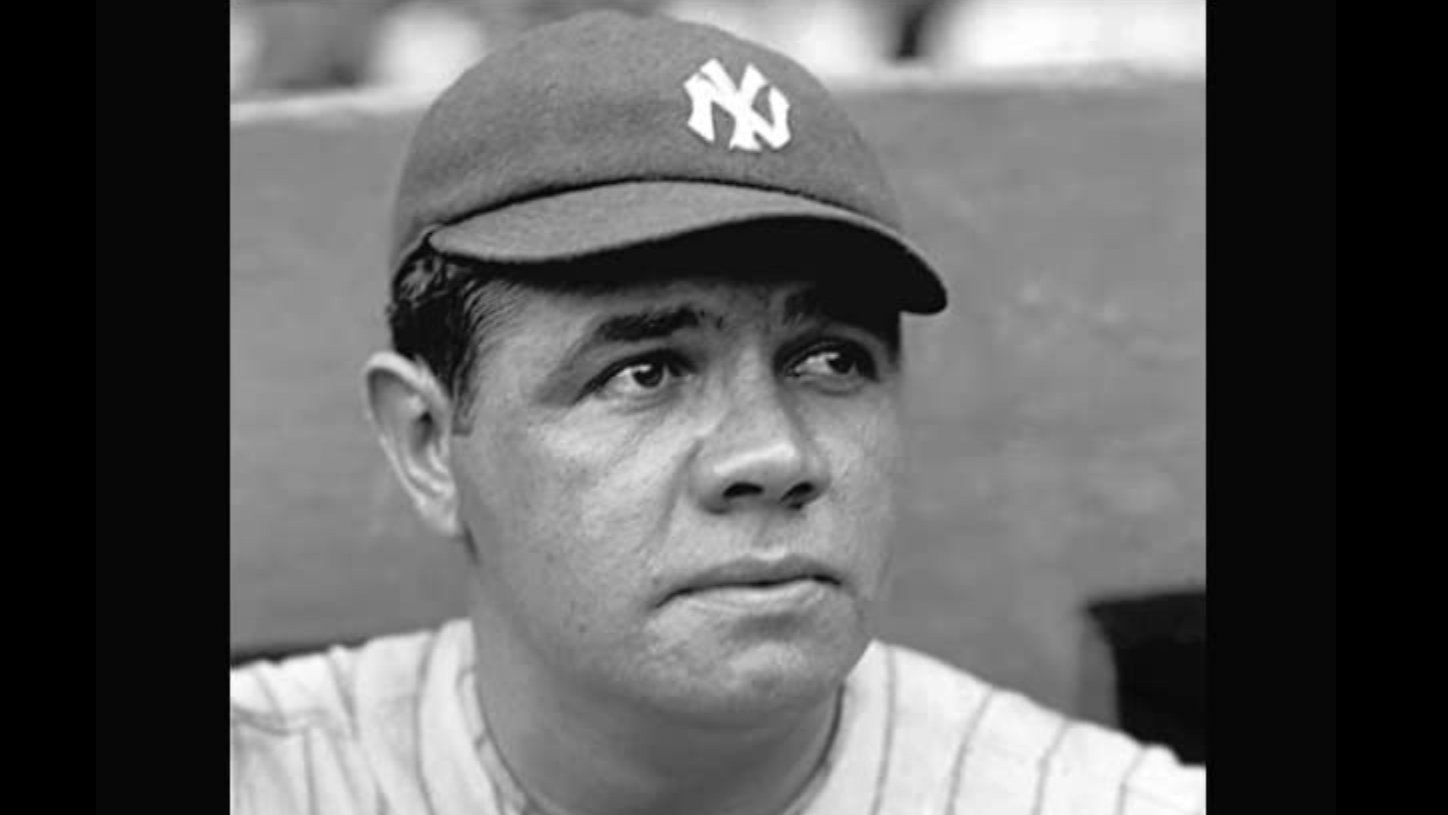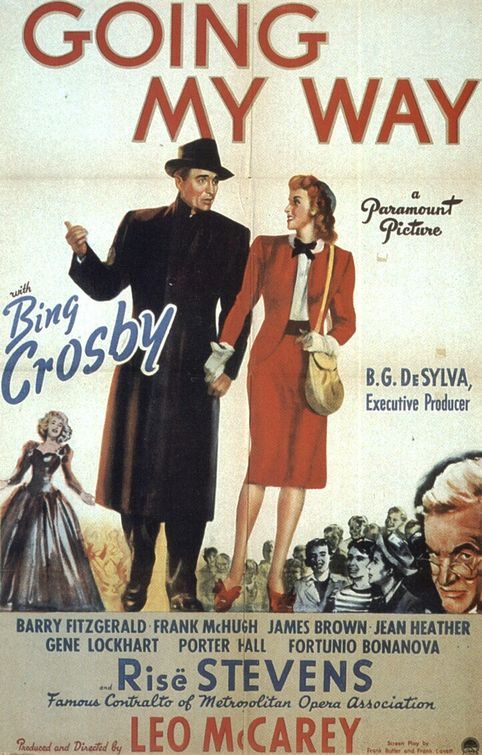
Babe Ruth on His Faith: ‘I Realized that God was not only Just, but Merciful’
By Movieguide® Staff
Note: This story is part of our Faith in Hollywood series. For similar stories, click here.
Legendary baseball player, Babe Ruth is not only in the MLB Hall of Fame, but is also regarded as one of the most important sports figures in American history.
However, behind his 22-year long career and 714 home runs, the superstar said that his life changed when he began to build on the foundation of true faith.
But Ruth recalled that a lack of foundation marked his childhood.
“Bad boy Ruth–that was me,” he wrote in an article from 1948. “Don’t get the idea that I’m proud of my harum-scarum youth. I’m not. I simply had a rotten start in life, and it took me a long time to get my bearings.”
“Looking back to my youth, I honestly don’t think I knew the difference between right and wrong. I spent much of my early boyhood living over my father’s saloon, in Baltimore–and when I wasn’t living over it, I was in it, soaking up the atmosphere. I hardly knew my parents,” he continued. “St. Mary’s Industrial School in Baltimore, where I was finally taken, has been called an orphanage and a reform school. It was, in fact, a training school for orphans, incorrigibles, delinquents and runaways picked up on the streets of the city.”
Despite his rough upbringing, Ruth recalls the impact that Brother Matthias had in giving him direction.
“I was listed as an incorrigible. I guess I was. Perhaps I would always have been but for Brother Matthias, the greatest man I have ever known, and for the religious training I received there which has since been so important to me,” Ruth said.
“I doubt if any appeal could have straightened me out except a Power over and above man–the appeal of God. Iron-rod discipline couldn’t have done it. Nor all the punishment and reward systems that could have been devised. God had an eye out for me, just as He has for you, and He was pulling for me to make the grade,” he added. “As I look back now, I realize that knowledge of God was a big crossroads with me. I got one thing straight (and I wish all kids did)–that God was Boss. He was not only my Boss but Boss of all my bosses.”
As Ruth learned about God’s justice, he also learned about God’s mercy.
“I also realized that God was not only just, but merciful. He knew we were weak and that we all found it easier to be stinkers than good sons of God, not only as kids but all through our lives,” Ruth said. “That clear picture, I’m sure, would be important to any kid who hates a teacher, or resents a person in charge. This picture of my relationship to man and God was what helped relieve me of bitterness and rancor and a desire to get even.”
Ruth also credited Brother Matthias for introducing him to the game of baseball.
“I’ve seen a great number of ‘he-men’ in my baseball career, but never one equal to Brother Matthias. He stood six feet six and weighed 250 pounds. It was all muscle. He could have been successful at anything he wanted to in life–and he chose the church,” Ruth explained. “It was he who introduced me to baseball. I never forget the first time I saw him hit a ball. The baseball in 1902 was a lump of mush, but Brother Matthias would stand at the end of the yard, throw the ball up with his left hand, and give it a terrific belt with the bat he held in his right hand.”
He continued: “The ball would carry 350 feet, a tremendous knock in those days. I would watch him bug-eyed. Thanks to Brother Matthias I was able to leave St. Mary’s in 1914 and begin my professional career with the famous Baltimore Orioles. Out on my own … free from the rigid rules of a religious school … boy, did it go to my head. I began really to cut capers.”
Ruth confessed that his new life as a professional baseball player took precedence over his life of faith.
“I strayed from the church, but don’t think I forgot my religious training. I just overlooked it. I prayed often and hard, but like many irrepressible young fellows, the swift tempo of living shoved religion into the background,” Ruth recalled.
“So what good was all the hard work and ceaseless interest of the Brothers, people would argue? You can’t make kids religious, they say, because it just won’t take. Send kids to Sunday School and they too often end up hating it and the church,” he asked. “Don’t you believe it. As far as I’m concerned, and I think as far as most kids go, once religion sinks in, it stays there–deep down. The lads who get religious training, get it where it counts–in the roots. They may fail it, but it never fails them.”
Ruth recalled:
In December, 1946, I was in French Hospital, New York, facing a serious operation. Paul Carey, one of my oldest and closest friends, was by my bed one night.
“They’re going to operate in the morning, Babe,” Paul said. “Don’t you think you ought to put your house in order?”
I didn’t dodge the long, challenging look in his eyes. I knew what he meant. For the first time I realized that death might strike me out. I nodded, and Paul got up, called in a Chaplain, and I made a full confession.
“I’ll return in the morning and give you Holy Communion,” the chaplain said, “But you don’t have to fast.”
“I’ll fast,” I said. I didn’t have even a drop of water.
As I lay in bed that evening I thought to myself what a comforting feeling to be free from fear and worries. I now could simply turn them over to God. Later on, my wife brought in a letter from a little kid in Jersey City.
“Dear Babe”, he wrote, “Everybody in the seventh grade class is pulling and praying for you. I am enclosing a medal which if you wear will make you better. Your pal–Mike Quinlan.
P.S. I know this will be your 61st homer. You’ll hit it.”
I asked them to pin the Miraculous Medal to my pajama coat. I’ve worn the medal constantly ever since. I’ll wear it to my grave.
Guideposts reported of Ruth’s article:
This is Babe Ruth’s last message. It was written with the help of friends Joe L. Brown (of the MGM Studios which produced The Babe Ruth Story), Paul Carey, and Melvyn G. Lowenstein not long before the Babe died. The Guideposts office received it on the fatal day–August 16, 1948.
We bring it to our readers as a notable guidepost to the solution of the serious problem of juvenile delinquency, it is the simple, honest story of a man who relearned what faith meant, and who says so humbly and proudly, knowing it was his most valuable legacy to his fellow man.
Questions or comments? Please write to us here.


 - Content:
- Content: 

